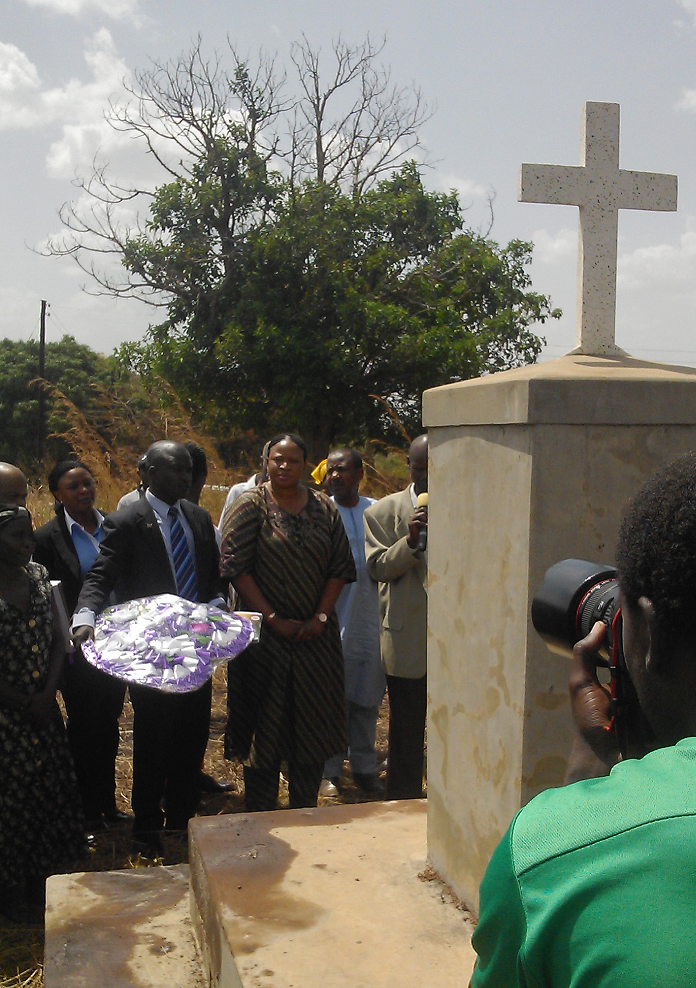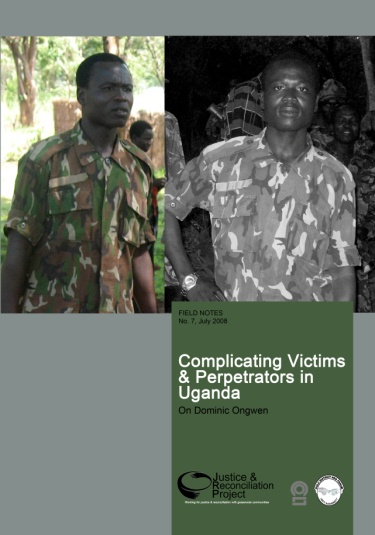Welcome to this issue of JRP’s newsletter. This month we highlight work JRP’s Gender Justice and Community Mobilisation departments have been doing, including the results of research on the reintegration challenges of children born of war in northern Uganda and reconciliation initiatives in Acholi and Lango sub-regions.
Sharing victim-centred views on justice and reconciliation with JRP’s Voices

Since 2012, JRP’s Voices magazine has shared victim-centred views on justice and reconciliation in northern Uganda. The magazine accommodates varied views on transitional justice, peacemaking and post-conflict with issues presenting views on reparations, truth-telling, accountability and more. This month, we are launching the new face of Voices at its own website: http://voices.justiceandreconciliation.com.
You can read all older articles as well as newer articles under the Community Voices, Opinion and News sections. For submission guides and instructions on how you can contribute, contact Oryem Nyeko at onyeko@justiceandreconciliation.com.
Also, follow Voices’ twitter feed here.
JRP launches situational brief on children born of war
‘Children born of war’ are children that were conceived as a result of conflict-related sexual and gender-based violence. These include children born in captivity and children born of war-related rape or defilement. On 16 June, the International Day of the African Child, JRP launched a situational brief presenting the findings of research into the reintegration challenges of these children and their mothers in northern Uganda. The brief, titled ‘Alone Like a Tree: Reintegration Challenges Facing Children Born of War and Their Mothers in Northern Uganda’, is the result of consultations held with children born of war in Lango, Acholi and West Nile sub-regions of Uganda.
Alone Like a Tree also presents recommendations for stakeholders and government to take steps to address the issues identified.
Read the brief here.
JRP implements regional reconciliation initiative in Acholi and Lango

This year, the Justice and Reconciliation Project is implementing an initiative titled ‘Across Regional Boundaries: Promoting Regional Reconciliation in Acholi and Lango Sub-Regions’ with support from USAID-SAFE. The project aims to promote community conflict memory and foster reconciliation at community and regional level through community-based peace structures, dialogues and training.
Read blogs and find out more about this initiative here.
Patrick Odong, a multi-talent
Every newsletter, we’ll be profiling a member of JRP’s team. This month, Patrick Odong, our Programme Driver and Logistics Assistant is our subject.
Patrick does a lot at the Justice and Reconciliation Project: he drives its vehicles, serves as a member of its procurement committee helping with procurement of office assets and equipment, and administers JRP’s asset registry. In addition to all of this, he also helps in coordinating transport at JRP. It was this diversity that has kept him working with JRP since he joined in May 2006 as a driver.
Patrick comes from a family with a rich history of human rights advocacy – including his father who was a human rights activist – which is something that was a contributing factor to his with adapting to the organization. Witnessing JRP’s work first-hand, he says, allowed him to learn about vulnerable people on the outskirts of Gulu as well as “the flow of justice.”
“JRP was [an] organisation that worked with grassroots people so that their problems were heard.”
A highlight of his time at JRP was the exposure JRP had when a petition by the Women’s Advocacy Network (WAN) was presented to the Ugandan Parliament. “That was a real fight,” says Patrick.
Other highlights were JRP’s publication of the field notes on massacres in places like Burcoro, Atiak and Lukodi: “To be the first to come out with such things means something.”

Patrick has a certificate of defensive driving from Uganda Police in conjunction with Acholi Private Sector and has driving experience with NGOs for 15 years. He also has experience a teacher by profession and studied education at Gulu Core Teachers College and taught in Laroo Adra P7 school which specializes teaching deaf children. He also ran a family business and worked in the Ugandan military during the insurgency as a driver.
As an addition to Patrick’s diverse experience, Patrick has enjoyed the fact that working at JRP has allowed him to develop other skills. “Having come in as a driver I was given access to other opportunities – like communications skills.”
Patrick wants to see the women JRP works with have justice in the future. He wants to live in a peaceful environment. What is Patrick’s goal for the future? “My goal is having peace.”
Photo: Giving women’s group in Barlonyo tips on how to use herbicides consignment in 2015.
Peace and Conflict Calendar – Previous and Upcoming dates
Acholi Pii Massacre, 4 July 1996
Mukura Massacre, 11 July 1989
Mucwini Massacre, 22 July 2002
Namokora Massacre, 16 August 1986
See the rest of JRP’s Peace and Conflict Calendar here.
Connect with JRP
Thank you for reading this update! Continue to connect with us on our LinkedIn page. Also, remember to visit our website for our latest blogs and updates on transitional justice developments in northern Uganda and Africa’s Great Lakes region. You can also participate in the discussions on our Facebook page and on our twitter profile!










